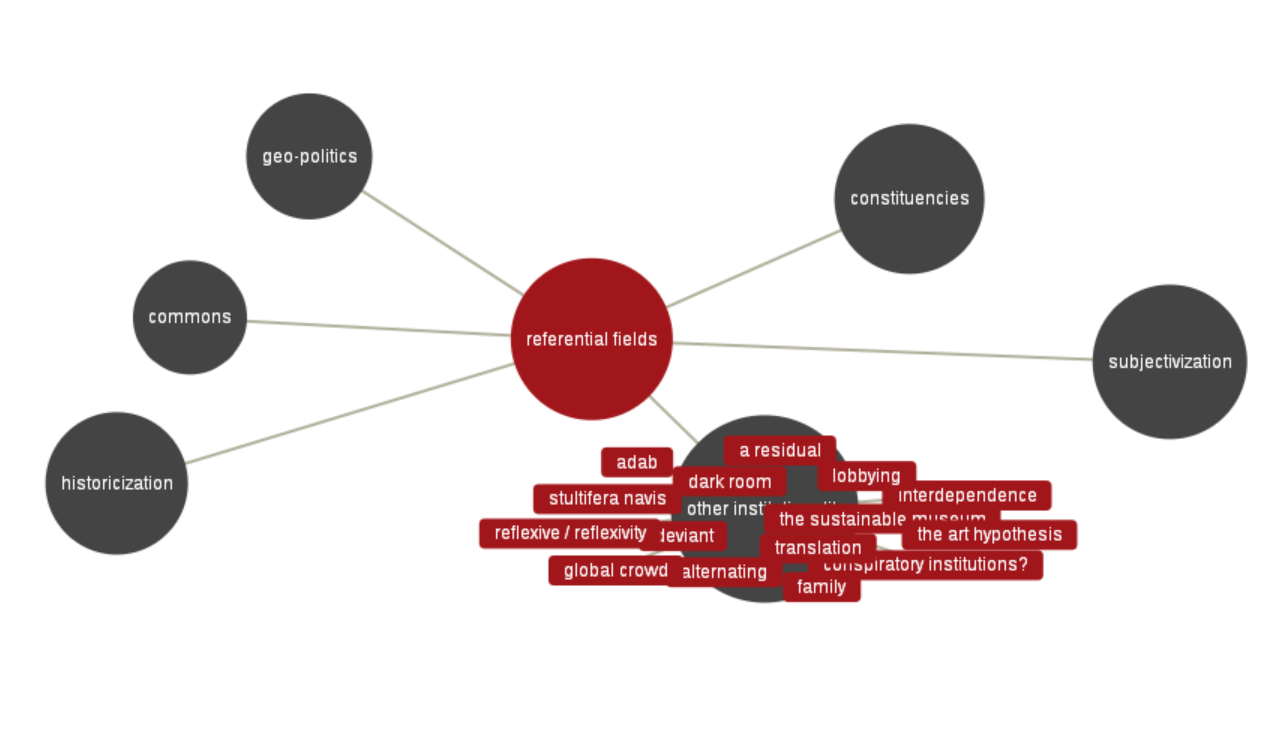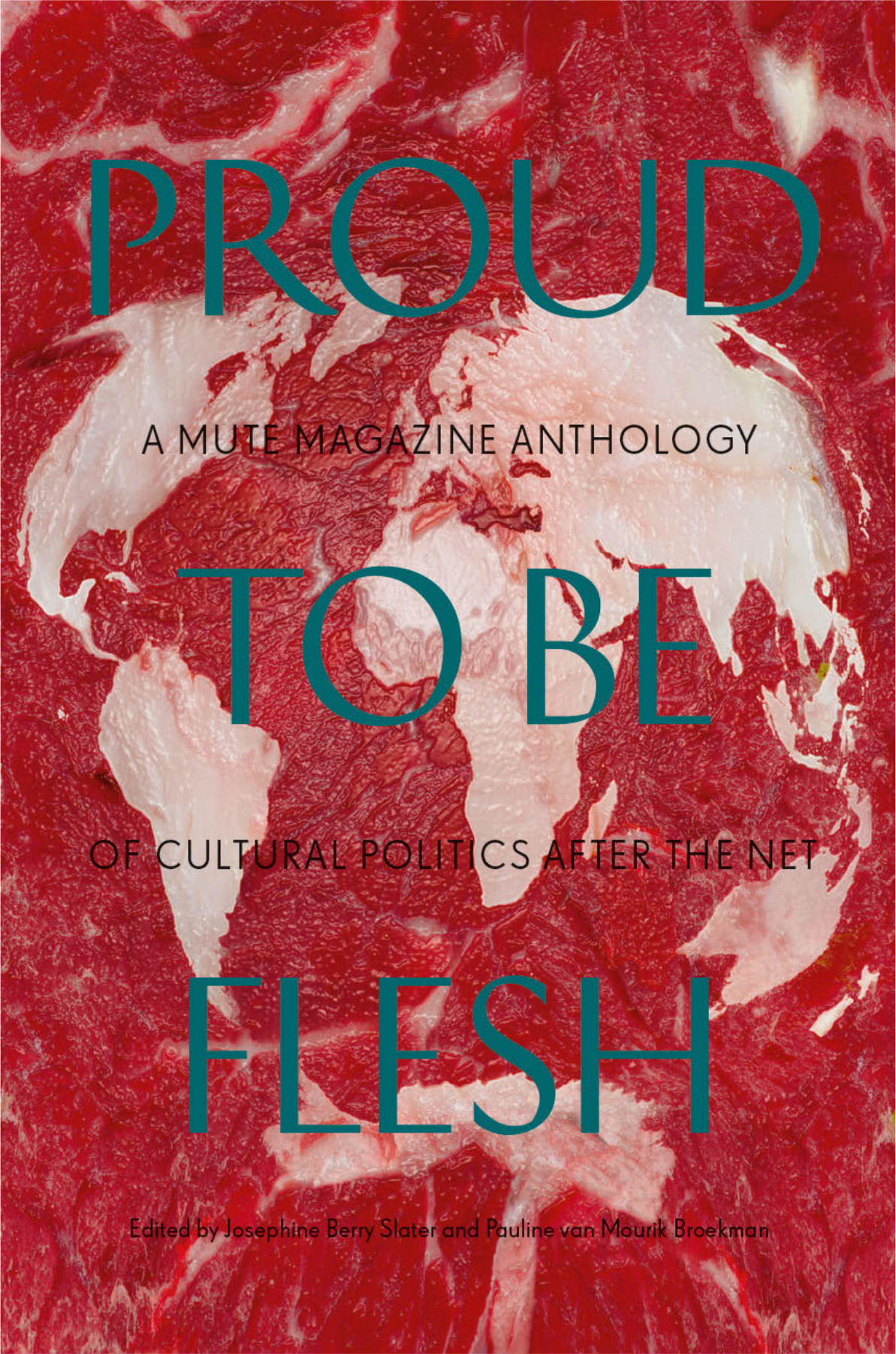Glossary of Common Knowledge (2017)
Filed under book | Tags: · art theory, commons, contemporary art, geopolitics, glossary, history, politics, subjectivation, subjectivity, theory

The Glossary of Common Knowledge is a research project by MG+MSUM, Ljubljana, in the frame of L’Internationale, aiming to negotiate various positions, contexts and local narratives about contemporary art. The glossary entries were produced through six seminars (2014-17), each focusing on one selected referential field: historicization, subjectivization, geo-politics, other institutionality, and commons. The resulting website now functions as an open platform accepting new contributions.
Fields and terms:
Historicization: archive, constellation, emancipation, temporally embodied sound, estrangement, heterochronia, humanism, intuition, pathological fracture, phantom (pain), reconstruction, self-historicization, temporalities, tendencies in art, the contemporary.
Subjectivization: creleasure, dancing as insurrectional practice, decolonize, evidence, fragility, interest, kapwa, loser, over-identification, radical imagination, self-determination, self-representation, on subjectivization, the subject, travesti, unrest.
Geo-politics: agitational visual language, alignment, catastrophe, eurasia, event, global resistance, institutional geopolitical strategies, migrancy, non-aligned movement, pandemic, postsocialism, south, tudigong, god of the land, white space.
Constituencies: agency, autonomy, biotope, bureaucratisation, collaboration / co-labour, construction, the continuity-form and counter-continuity, de-professionalization, intervenor, labour, ñande / ore, the eternal network / la fête permanente, the rest is missing.
Commons: to baffle, basic income, the brotherhood & unity highway, constituent power of the common, corrected slogan, data asymmetry , friendship, heterotopian homonymy, institution, noosphere, palimpsest, rog, self-management, solidarity, theft.
Other institutionality: a residual, adab, alternating, conspiratory institutions?, dark room, deviant, family, global crowd, interdependence, lobbying, reflexive / reflexivity, stultifera navis, the sustainable museum, the art hypothesis, translation.
Curated by Zdenka Badovinac, Bojana Piškur and Jesús Carrillo (MNCARS) in collaboration with L’Internationale, et al
Publisher MG+MSUM, Ljubljana, 2017
HTML (on the website of MG+MSUM)
HTML (on the website of L’Internationale, added on 2020-4-12)
Seminar recordings structured by terms discussed
Baylee Brits, Prudence Gibson, Amy Ireland (eds.): Aesthetics After Finitude (2016)
Filed under book | Tags: · aesthetics, anthropocene, fiction, human, immanence, noise, philosophy, sound, subject, theory

“Traditionally aesthetics has been associated with phenomenal experience, human apprehension and an appreciation of beauty—the domains in which human cognition is rendered finite. What is an aesthetics that might occur ‘after finitude’?”
Contributions by Marc Couroux, Prudence Gibson, Thomas Sutherland, Lendl Barcelos, Douglas Kahn, Adam Hulbert, Baylee Brits, Stephen Muecke, Laura Lotti, Christian R. Gelder, Simon O’Sullivan, Tessa Laird, Chris Shambaugh (and Maudlin Cortex), Chaim Horowitz, and Amy Ireland.
Afterword by Justin Clemens
Publisher re.press, Melbourne, Dec 2016
Anamnesis series
Creative Commons BY-NC-ND License 2.5
ISBN 9780980819793, 0980819792
241 pages
Conference (2015)
Publisher
WorldCat
Proud to be Flesh: A Mute Magazine Anthology of Cultural Politics after the Net (2009)
Filed under book | Tags: · art criticism, art history, internet, london, media, media art, net culture, networks, politics, technology, theory

“In late 1994, back in the days of dial-up modems and Netscape Navigator 1.0, Mute magazine announced its timely arrival. Dedicated to an analysis of culture and politics ‘after the net’, Mute has consistently challenged the grandiose claims of the communications revolution, debunking its utopian rhetoric and offering more critical perspectives.
Fifteen years on, this anthology selects representative articles from the magazine’s hugely diverse content to reprise some of its recurring themes. This expansive collection charts the perilous journey from Web 1.0 to 2.0, contesting the democratisation this transition implied and laying bare our incorporeal expectations; it exposes the ways in which the logic of technology intersects with that of art and music and, in turn and inevitably, with the logic of business; it heralds the rise of neoliberalism and condemns the human cost; it amplifies the murmurs of dissent and revels in the first signs of collapse. The result situates key – but often little understood – concepts associated with the digital (e.g. the knowledge commons, immaterial labour and open source) in their proper context, producing an impressive overview of contemporary, networked culture in its broadest sense.
Proud to be Flesh features a mix of essays, interviews, satirical fiction, email polemics and reportage from an array of international contributors working in art, philosophy, technology, politics, cultural theory, radical geography and more.”
Edited by Josephine Berry Slater and Pauline van Mourik Broekman, with Michael Corris, Anthony Iles, Benedict Seymour and Simon Worthington
Publisher Mute Publishing, London, with Autonomedia, New York, 2009
ISBN 9781906496289, 1906496285
572+48 pages
Reviews: Nicholas Thoburn (New Formations), Charlotte Frost (Rhizome), Julian Stallabrass (New Left Review).
PDF, PDF (15 MB, updated on 2019-6-12)
Comment (0)
